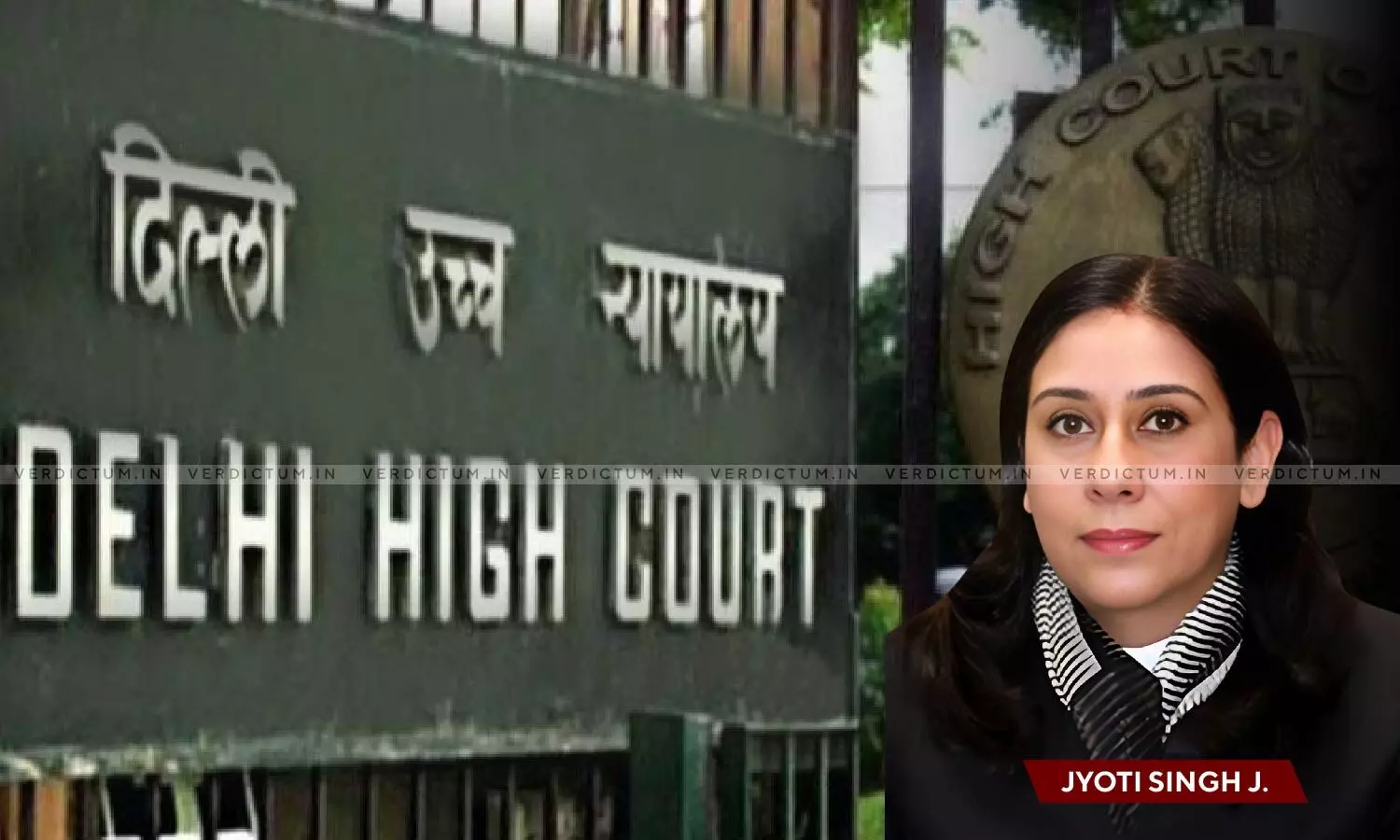
Once Parties Have Mutually Settled Their Disputes To Put A Quietus To Their Pending Litigation, No Proceedings Shall Continue Further: Delhi HC
 |
|While considering a petition filed with the objective of quashing an FIR registered under Sections 354/354A/354D/506/509 of the Indian Penal Code, along with all subsequent proceedings stemming from the FIR, the Delhi High Court had quashed a criminal case on the grounds that the parties involved therein had amicably settled their disputes.
A Single Judge Bench of Justice Jyoti Singh observed that “In view of the fact that parties have mutually settled their disputes, in order to put a quietus to the litigation pending between them, this Court sees no reason to continue the proceedings as no useful purpose will be served in doing so”.
The Bench reiterated that criminal cases with a predominantly civil character are treated differently when it comes to the matter of quashing, and this distinction is especially relevant for offenses arising from commercial, financial, mercantile, civil, partnership, or similar transactions, as well as offenses related to matrimony involving issues like dowry or family disputes.
Advocate Pulkit Luthra appeared for the Petitioner, whereas Advocate Amit Sahni appeared for the Respondent.
In cases where the wrong is essentially of a private or personal nature and the parties involved have resolved their entire dispute, the Bench elucidated that the Writ Court may choose to quash the criminal proceedings and can take this step if it believes that, due to the compromise between the offender and the victim, the likelihood of a conviction is remote and unlikely.
Furthermore, if the continuation of the criminal case would subject the accused to significant oppression and prejudice, causing extreme injustice despite a full and complete settlement and compromise with the victim, then quashing the criminal case may be considered, added the Bench.
The Bench further found that over time and with the involvement of relatives, mutual friends, and families, the internal disputes between the parties had been peacefully resolved.
The terms of this resolution had been documented in a settlement deed, noted the Bench.
Thus, the Bench determined that since the parties involved had amicably settled their disputes to bring an end to the ongoing litigation between them, there was no justification to persist with the proceedings.
In the interest of justice and to preserve peace and harmony between the parties, the High Court allowed the petition and consequently, quashed the proceedings.
However, the relief granted was subject to the accused’s commitment to contribute a sum of Rs. twenty-five thousand in the form of woolen blankets, which he was required to provide to Kilkari Rainbow Home for Girls in Kashmere Gate, Delhi.
Cause Title: Deepak Verma v. State and Anr. [Neutral Citation: 2023: DHC: 6985]
Click here to read/ download the Judgment